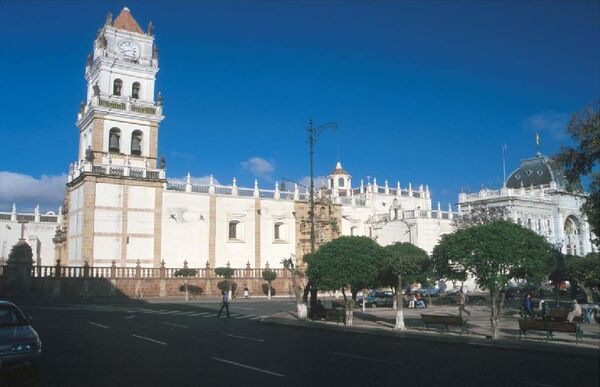Bolivians will have an opportunity to taste a unique fizzy drink produced from coca leaves starting from the new year, Latin American media reported on Thursday.
The drink named Coca Colla is to be sold in bottles with red labels resembling those of the famous American drink with an almost similar name. Leaves of coca cultivated in the central Bolivian city of Cochabamba will be used for producing the drink.
Producers of the new drink said it will become a part of a campaign aimed at "industrializing coca leaves."
United Nations included coca leaves in its list of dangerous drugs in 1961. However, Andes aborigines insist coca in its natural state is not a drug and even has healing properties. The plant is used in traditional medicine and during religious ceremonies. It is also a basic component for producing tea, wine, beer and flour.
Coca leaves have been chewed by South American Indians for many thousands of years to induce a mild, long-lasting euphoria.
Bolivia, with its coca plantations covering some 30,000 hectares, is the world's third largest producer of cocain. Columbia, with 150,000 hectares of coca, is the leader of cocain production. Peru takes second place, with 97,000 hectares of plants.
Bolivian President Evo Morales, the country's first fully indigenous head of state, has called for the revival of the "traditional coca cultivation" in Bolivia, which was a part of the Inca Empire prior to European colonization. The plant was declared national heritage in line with the Constitution adopted in February 2009.
However, the president has been actively fighting the illegal drug trafficking in the country. Some 18,000 hectares of illegal coca plants have been destroyed in Bolivia over the past two years.
MOSCOW, December 31 (RIA Novosti)




